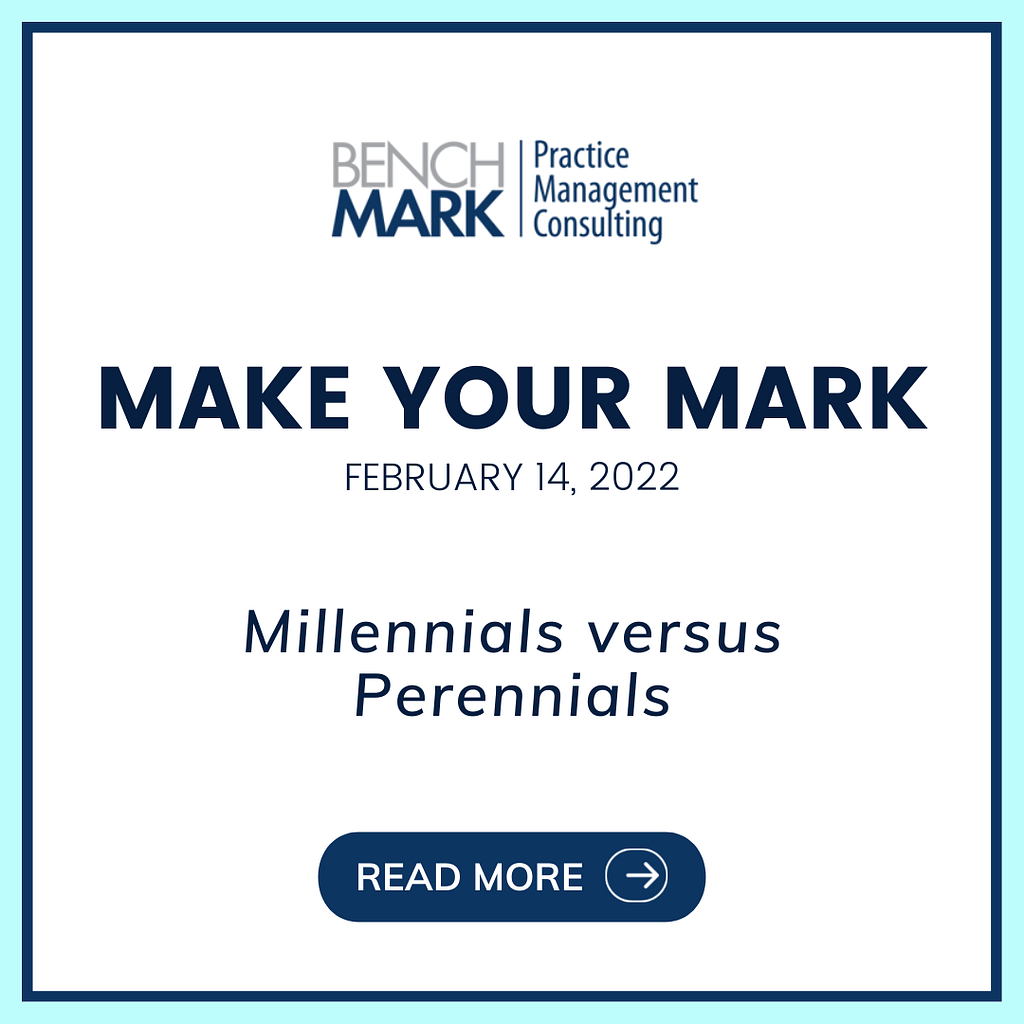Millennials and Gen Z’s all seem to receive a bad reputation when spoken about as employees. Many of the complaints voiced by Office Managers and Owners about this group are that they are always looking for greener grass, they don’t have a good work ethic as they are always on their phones and they aren’t team players.
Perennials (those more experienced in the work world) very often get bashed for not being up to date on technology, they don’t want to change their ways and can be condescending when working with younger team members.
In this world of staff shortages, how do you find the mix that makes it all work? It all seems to confound some days. Any team will benefit from the viewpoints of both groups and patients will benefit from being able to identify with one or the other group.
To make all of this work in your office you will need to address some of the reasons for these differing points of view and find a common ground where both groups can learn from each other.
Firstly, let’s look at some of the reasons that both groups have gotten these reputations:
Millennials and Gen Z’s have a reliance on technology for connection that has never been seen before in history. This shows up as a lack of patience as they are used to having everything delivered to them quickly whether it is information or something material (think Amazon Prime). This group also grew up with a parenting attitude where everyone should be awarded whether they put in the effort or not (think participation awards for sports). The use of cell phones has also to some degree taken away some of the nuances of face-to-face interaction that would have been learned through time. Some also see work as an inconvenience to their personal life balance.
Perennials are seen as having a better work ethic because they very often will put work ahead of their personal lives, which can be translated by some as loyalty to their employer. They see the methods that they have been using for years look like it’s working so they don’t see the need for change. Change is always uncomfortable whether it is new team members, new technology or a new employer so very often these changes aren’t welcomed by Perennials. This sense of discomfort can lead to impatience and a change of tone.
Secondly, let’s look at ways that both groups can work together and engage creating a perfectly balanced working environment:
- Engage the Millennial and mentor them as this could be a new environment for them as well.
- Pair a Millennial with a Perennial so that they can work together and show each other some new “tricks”
- If the office works longer hours each day, perhaps have two people fill one position that would suit the work/life balance that many Millennials and Gen Zer’s are trying to achieve
- To attract more team members of all of life’s stages add in some lifestyle balance options as an office benefit
- The cost of losing a team member is approximately $10,000 at a minimum, ensure that you have the correct culture in place to avert this cost
- Encourage the team with expectations of accountability and performance goals
Creating the balance takes work yet it is well worthwhile for creating a culture with harmony. You can’t force harmony, although you can encourage a culture where everyone is heard, and their opinion counts no matter their experience level. Your office will reap the rewards.




